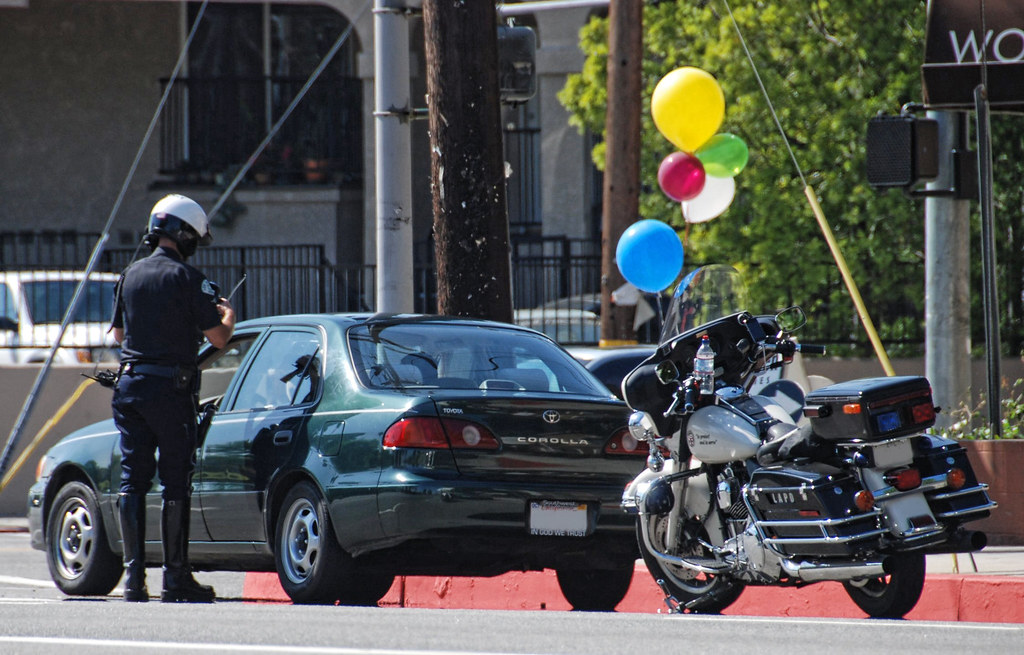In Townsville, where the roads are bustling and the legalities are stringent, the role of a traffic lawyer becomes increasingly pertinent. At Strategic Lawyers, we understand the nuances of these legal challenges and are poised to offer expert guidance. This article aims to shed light on the crucial role of traffic lawyers in the Australian legal system, particularly in Townsville, while subtly introducing our capabilities in this domain.
Understanding the Role of a Traffic Lawyer
A traffic lawyer is a legal professional specialising in the laws and regulations governing road use. Their expertise encompasses a wide range of issues, from minor infringements like speeding tickets to more severe offences such as drunk driving or dangerous driving. The primary responsibility of a traffic lawyer is to provide legal representation and advice to individuals charged with traffic offences. They are adept at navigating the complexities of traffic law, ensuring that their client’s rights are protected and that they receive a fair hearing.
Traffic lawyers are distinct from other legal professionals in their specialised knowledge of road laws and the unique challenges they present. Unlike general practitioners or criminal lawyers, traffic lawyers are deeply versed in the nuances of traffic legislation, including the latest amendments and judicial interpretations. This specialised knowledge is crucial in offering effective legal representation in traffic-related cases.
In Townsville, where traffic regulations are stringently enforced, the expertise of a traffic lawyer can be the difference between a favourable outcome and a costly penalty.
Common Cases Handled by Traffic Lawyers
Traffic lawyers play a pivotal role in representing and advising clients on a variety of cases. In Queensland, and particularly in Townsville, these legal professionals encounter a range of traffic-related issues. Understanding these common cases helps in appreciating the complexity and necessity of their expertise.
Overview of Typical Cases
- Speeding Violations: One of the most frequent cases handled by traffic lawyers involves speeding. The consequences of speeding can range from fines to demerit points on the driver’s licence, and in severe cases, can lead to licence suspension.
- Driving Under the Influence (DUI): DUI cases are taken very seriously in Queensland. The legal blood alcohol concentration (BAC) limits vary depending on the licence type, and exceeding these limits can result in heavy fines, licence disqualification, and even imprisonment.
- Reckless Driving: This encompasses a range of behaviours deemed dangerous to the public, such as excessive speeding, evading police, or driving in a manner that endangers others. Reckless driving charges can lead to severe penalties, including imprisonment.
Approach in Australian Law with a Focus on Queensland Regulations
In Queensland, traffic law is governed by both state and national regulations, with specific attention to ensuring road safety. When handling these cases, traffic lawyers must consider several factors:
- Legal Representation and Advice: Traffic lawyers provide crucial legal advice, helping clients understand the charges against them, the potential outcomes, and the best course of action.
- Negotiation and Case Conferencing: In some cases, traffic lawyers negotiate with prosecutors to reduce charges or penalties, especially in situations where there are mitigating circumstances or where the infringement is minor.
- Court Representation: If a case goes to court, a traffic lawyer represents the client, presenting evidence and arguments to support the client’s case. They ensure that the client’s rights are upheld and aim for the most favourable outcome based on the circumstances.
- Understanding of Local Laws: Traffic laws can vary significantly from one state to another. In Queensland, for instance, there are specific regulations regarding DUI, speeding, and reckless driving that a traffic lawyer must be thoroughly familiar with.
Traffic lawyers in Queensland, particularly in regions like Townsville, deal with a range of cases from minor infringements to serious offences. Their role is not just to represent clients in court, but also to provide expert advice and negotiate the best possible outcomes. At Strategic Lawyers, our understanding of local Queensland laws and our commitment to providing top-tier legal services positions us uniquely to handle such cases effectively.
The Legal Process in Traffic Cases
Navigating the legal process in traffic cases can be complex and intimidating. A traffic lawyer plays a crucial role in guiding clients through each step, ensuring that their rights are protected and that they have the best possible representation. Here’s a step-by-step guide through the legal process in traffic cases, with an emphasis on the role of a traffic lawyer at each stage.
Step 1: Initial Consultation and Case Evaluation
The process typically begins with an initial consultation. Here, the traffic lawyer evaluates the details of the case, including the nature of the traffic offence and any evidence against the client. This stage is crucial for understanding the legal situation and planning the course of action.
Step 2: Gathering and Analysing Evidence
A traffic lawyer then gathers all relevant evidence, which may include police reports, witness statements, and any photographic or video evidence. They meticulously analyse this information to build a strong defence or to identify any procedural errors or mitigating factors that could benefit the client.
Step 3: Legal Advice and Strategy Development
Based on the evidence and the specifics of the case, the lawyer provides legal advice to the client. This includes explaining the legal implications, potential outcomes, and developing a strategy tailored to the case’s specifics. The strategy might involve challenging the charges, negotiating a case, or preparing for a court trial.
Step 4: Representation in Court
If the case proceeds to court, the traffic lawyer represents the client, presenting arguments and evidence to the judge or magistrate. This representation is critical as the lawyer articulates the defence, cross-examines witnesses, and works to achieve the best possible outcome for the client.
Step 5: Negotiation and Case Conferencing
In some cases, the traffic lawyer may engage in negotiations with the prosecution to reduce the charges or penalties. This is particularly relevant in cases where there is room for interpretation of the law or where mitigating circumstances can be presented.
Step 6: Sentencing and Post-Trial Procedures
If the case results in a conviction, the traffic lawyer assists in the sentencing process, advocating for leniency or alternative penalties where appropriate. They also guide clients through any post-trial procedures, such as appealing the decision or meeting the conditions of a sentence.
Step 7: Licence Reinstatement and Ongoing Advice
Finally, in cases involving licence suspension, a traffic lawyer can assist in the process of licence reinstatement. They provide ongoing legal advice to ensure clients understand and comply with any legal obligations or restrictions.
Throughout each of these steps, a traffic lawyer’s expertise is invaluable. They navigate the complexities of the legal system, ensuring that the client’s case is handled with professionalism and diligence.
The Importance of Legal Expertise in Traffic Violations
Traffic law in Australia, particularly in Queensland, is a complex and ever-evolving field. The intricacies of these laws can often be overwhelming for individuals facing traffic violations. This complexity underscores the importance of having legal expertise in such situations.
Traffic laws encompass a wide range of regulations, from minor infringements to serious offences. Each case can involve different legal statutes, administrative procedures, and potential penalties. A traffic lawyer’s deep understanding of these laws is crucial in navigating the legal system effectively.
One of the key roles of a traffic lawyer is to work towards reducing penalties for their clients. This can involve negotiating with prosecutors for lesser charges or arguing for reduced fines and shorter licence suspensions. In some cases, they can negotiate alternative penalties, such as traffic school or community service, which can be especially beneficial in avoiding harsher consequences.
In instances where there are procedural errors, lack of evidence, or violations of rights, a traffic lawyer can argue for charges to be dropped entirely. Their ability to scrutinise the details of each case, from the legality of a traffic stop to the accuracy of a breathalyser test, is invaluable in these situations.
Choosing the Right Traffic Lawyer
When facing traffic violations, choosing the right lawyer is critical. The ideal traffic lawyer should possess certain key qualities:
Expertise and Experience
Look for a lawyer with specific experience in traffic law. Their expertise in this area means they are up-to-date with the latest laws and court decisions that could affect your case.
Proven Track Record
Consider their success rate in handling traffic cases. A lawyer with a history of successfully reducing or dismissing charges is likely to be more effective.
Communication Skills
Your lawyer should be an excellent communicator, both in explaining the legal process to you and in representing your case effectively in court.
Personalised Attention
Choose a lawyer who provides personalised attention to your case, understanding your specific situation and tailoring their approach accordingly.
The complexities of traffic law in Australia make it imperative to have expert legal assistance. A skilled traffic lawyer can significantly impact the outcome of a case, from reducing penalties to potentially getting charges dropped. When choosing a traffic lawyer, consider their expertise, experience, and approach to ensure the best possible representation.
Preventative Advice and Legal Education
Prevention is always better than cure, especially when it comes to traffic violations. Traffic lawyers not only represent clients in legal matters but also play a key role in educating them about traffic laws and how to avoid violations.
Tips on Avoiding Common Traffic Violations
- Stay Informed: Keep up-to-date with local traffic laws, as these can change.
- Be Mindful of Speed Limits: Speeding is a common violation. Always be aware of the speed limit, especially in school zones and construction areas.
- Avoid Distractions: Distracted driving is a leading cause of traffic violations. Avoid using your phone or engaging in other activities while driving.
- Never Drive Under the Influence: DUI charges carry severe penalties. Always have a designated driver or use alternative transportation if you’ve been drinking.
- Maintain Your Vehicle: Ensure your vehicle is in compliance with safety standards, including functioning lights, brakes, and other essential components.
Role of Traffic Lawyers in Legal Education
Traffic lawyers provide valuable legal education to their clients, helping them understand their rights and responsibilities on the road. This education can include advising on how to behave during traffic stops, the implications of different violations, and strategies for safe and lawful driving.
The Future of Traffic Law in Australia
As we look towards the future, traffic law in Australia is poised to evolve, particularly with the advent of new technologies and changing societal norms. Understanding these emerging trends is crucial for drivers and legal professionals alike.
Technology is significantly influencing traffic law. The rise of autonomous vehicles, for instance, is prompting legal discussions around liability and safety standards. Similarly, the use of smartphones has led to an increase in offences related to distracted driving. These technological advancements necessitate continuous updates to traffic laws and regulations.
In this ever-changing landscape, staying legally informed is more important than ever. Laws and regulations can change rapidly, and what was permissible yesterday might be an offence today. A traffic lawyer plays a critical role in this regard, staying abreast of the latest legal developments and advising their clients accordingly.
Navigating the Road Ahead: The Strategic Advantage
The role of a traffic lawyer in today’s fast-paced and ever-evolving world cannot be overstated. They are not just legal representatives in court; they are advisors, educators, and advocates. From guiding clients through the complexities of current traffic laws to preparing them for future changes, their expertise is invaluable.
Key Roles and Benefits of Hiring a Traffic Lawyer
- Expert Navigation of Legal Processes: Traffic lawyers provide essential guidance through the complexities of the legal system.
- Mitigation of Penalties: They play a crucial role in reducing the severity of penalties and in some cases, getting charges dropped.
- Educational Insight: Traffic lawyers educate their clients on traffic laws, promoting safer driving practices.
- Adaptation to Legal Changes: They help clients stay informed and adapt to the changing landscape of traffic law.
Your Strategic Partner on the Road
For those in Townsville facing traffic law challenges, Strategic Lawyers stands ready to assist. Our team is not only well-versed in current traffic laws but is also proactive in adapting to future changes. We are committed to providing our clients with the strategic legal support they need to navigate the complexities of traffic law.
If you find yourself in need of expert legal advice or representation in traffic-related matters, consider Strategic Lawyers as your trusted partner. We are here to guide you through every step of the process, ensuring that you are well-informed and expertly represented. Contact us today to learn more about how we can assist you in navigating the roads of today and tomorrow.






